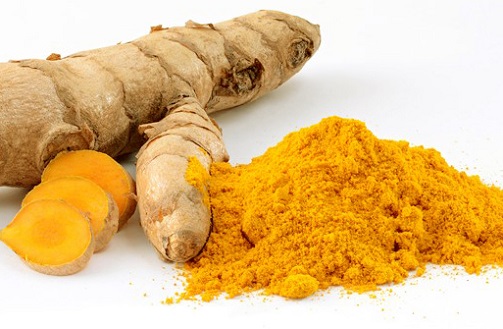Nikhil Prasad Fact checked by:Thailand Medical News Team Nov 04, 2024 5 months, 2 weeks, 6 days, 22 hours, 41 minutes ago
Herbs And Phytochemicals: Researchers from several respected institutions, including the Pharmacy Department at The People’s Hospital of Zhongjiang in China and the West China School of Medicine at Sichuan University, are shedding light on new therapeutic options for treating herpes zoster (shingles) and related neurological disorders.
 Curcumin Shows Promise in Treating Shingles and Neurological Disorders
Curcumin Shows Promise in Treating Shingles and Neurological Disorders
Their latest study emphasizes curcumin, a compound derived from turmeric, known for its antioxidant and anti-inflammatory properties. Curcumin could offer effective solutions to combat oxidative stress, a condition linked to numerous neurodegenerative diseases, including Alzheimer's and Parkinson’s. This
Herbs And Phytochemicals news report delves into the potential benefits curcumin may provide in managing these health challenges.
Curcumin and Its Neuroprotective Effects
Curcumin’s ability to regulate oxidative stress makes it a powerful natural antioxidant. Oxidative stress is a condition where harmful reactive oxygen species (ROS) accumulate in the body, leading to cellular damage. This oxidative imbalance is a significant factor in the progression of neurological disorders like Alzheimer’s, Parkinson’s, epilepsy, and glioblastoma. Research indicates that curcumin’s antioxidant activity helps protect neurons by reducing free radicals, hydrogen peroxide, and other oxidative intermediates, ultimately slowing down or even preventing disease progression.
The research team’s findings reveal that curcumin significantly improves cognitive function and memory in Alzheimer’s disease models. This improvement is linked to curcumin’s role in boosting levels of the enzyme superoxide dismutase (SOD), which fights oxidative damage in the brain. The study further highlights that curcumin, when combined with coenzyme Q10, offers enhanced protection against oxidative stress by lowering oxidase activity and DNA damage caused by disease-related proteins.
Benefits for Herpes Zoster and Beyond
Curcumin's anti-inflammatory properties could play a significant role in managing herpes zoster, a painful condition caused by the reactivation of the varicella-zoster virus. This virus causes intense nerve pain, and traditional treatments have limitations, especially for patients who do not respond well to antiviral medications. The study proposes that curcumin’s natural properties might mitigate nerve inflammation, potentially easing pain and promoting recovery. By reducing inflammation and oxidative stress, curcumin could help alleviate the long-term neuralgia (chronic pain) associated with herpes zoster.
Additionally, the researchers note that curcumin’s neuroprotective effects may extend to treating other viral infections affecting the nervous system. These findings are particularly important for patients at risk of chronic complications after infection, suggesting that curcumin could offer a versatile approach to managing various neurological and viral-induced conditions.
&
lt;br />
Curcumin’s Impact on Parkinson’s and Alzheimer’s Disease
For Parkinson’s disease (PD), the research explores curcumin’s impact on dopaminergic neurons. Parkinson’s is marked by a significant loss of these neurons, which are essential for dopamine production in the brain. Curcumin appears to protect these neurons by enhancing the activity of superoxide dismutase, reducing inflammation, and promoting cellular energy production. These effects could potentially slow the progression of Parkinson’s by reducing neuron death, a critical factor in PD's debilitating symptoms.
In Alzheimer’s disease, curcumin has shown promise in preventing the toxic buildup of beta-amyloid plaques and tau proteins, which are major contributors to the disease’s progression. The study details how curcumin can restore mitochondrial function, reduce synaptic loss, and improve antioxidant activity, providing a multifaceted approach to combat this complex disease. When administered preventatively, curcumin may offer even more substantial benefits, highlighting its potential as an early-intervention therapy for Alzheimer’s patients.
Challenges and Future Directions
One challenge to using curcumin in clinical settings is its low bioavailability, meaning the body does not easily absorb it in its natural form. To address this, the study explores curcumin in nanoparticle form, which improves its bioavailability and therapeutic efficacy. Curcumin-zinc oxide nanoparticles, for instance, have been shown to enhance curcumin’s effects on oxidative stress markers, increasing its protective impact on the brain. Future studies aim to refine these formulations, making curcumin-based treatments even more effective.
While current findings are promising, the researchers stress the need for further clinical trials to confirm curcumin’s efficacy in human subjects. They note that although animal models demonstrate significant improvements, controlled human studies are crucial to fully understand curcumin’s therapeutic potential. Ongoing research aims to establish the optimal dosages and treatment regimens, ensuring that curcumin can be safely and effectively incorporated into standard treatment protocols.
Conclusion
Curcumin’s versatile effects on neurological health open up new avenues for managing complex diseases such as herpes zoster, Parkinson’s, and Alzheimer’s. This powerful natural compound holds the potential to alleviate symptoms, protect neurons, and counteract the harmful effects of oxidative stress, offering hope for patients with limited treatment options. As researchers continue to unlock curcumin’s full potential, the possibility of integrating it into mainstream medicine becomes increasingly promising.
The study findings were published in the peer-reviewed journal: Frontiers in Pharmacology.
https://www.frontiersin.org/journals/pharmacology/articles/10.3389/fphar.2024.1496661/full
For the latest on Herbs and Phytochemicals, keep on logging to Thailand
Medical News.
Read Also:
https://www.thailandmedical.news/news/thailand-medical-researchers-develop-new-nanocarrier-to-deliver-curcumin-directly-to-breast-cancer-cells
https://www.thailandmedical.news/news/curcumin-the-golden-key-to-healthy-aging-and-disease-prevention
https://www.thailandmedical.news/news/mitochondrial-dysfunction-biomarkers-and-curcumin-new-hope-for-severe-covid-19
https://www.thailandmedical.news/news/covid-19-news-study-review-shows-that-curcumin-is-a-potential-antiviral-agent-and-immune-inflammatory-modulator-in-covid-19
https://www.thailandmedical.news/news/observational-clinical-study-shows-that-curcumin-with-catechin-improves-covid-19-infected-patient-s-inflammatory-conditions
https://www.thailandmedical.news/news/covid-19-herbs-randomized-controlled-trial-shows-that-curcumin-offers-anti-inflammatory-benefits-for-adults-recovering-from-covid-19-and-are-vaccinate
https://www.thailandmedical.news/news/breaking-german-study-shows-that-phytochemicals-from-turmeric-inhibit-sars-cov-2-in-vitro-and-could-be-used-as-potential-therapeutics-for-covid-19
